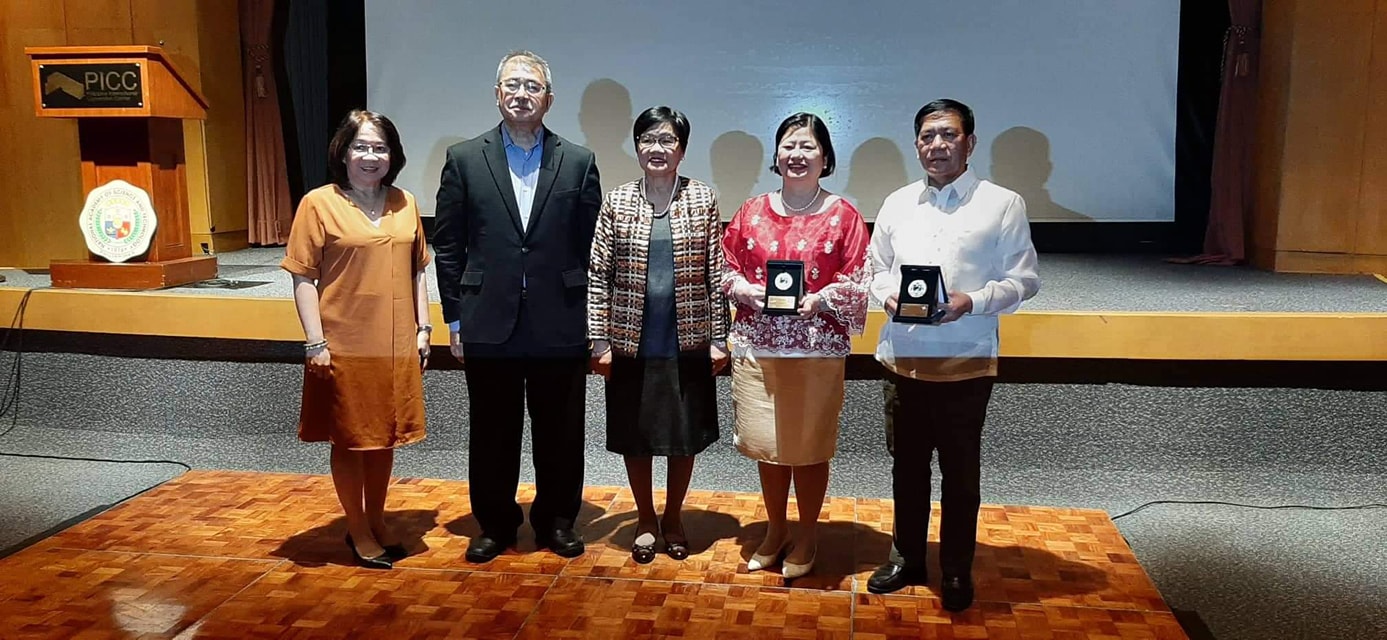
DOST Secretary Fortunato De La Peña (2nd from left) and Civil Service Commission (CSC) Chairperson Alicia Dela Rosa-Bala (middle) with PNRI Technology Diffusion Division Chief Ms. Ana Elena Conjares (extreme left) during the awarding of the new scientist ranks to PNRI's very own Dr. Lucille Abad (Scientist III) and Mr. Sotero Resilva (Scientist I) (4th and 5th from left, respectively). The oathtaking was held on December 16, 2019 at the Philippine International Convention Center, Pasay City, and was hosted by the Scientific Career System (SCS) and National Academy of Science and Technology, Philippines (NAST PHL). Photo from Dr. Lucille Abad
CSC Grants Scientist Ranks to PNRI Specialists
The Department of Science and Technology - Philippine Nuclear Research Institute (DOST-PNRI) congratulates its very own Sotero S. Resilva of the Agriculture Research Section, who was among the researchers who were recently conferred the Scientist rank by the Civil Service Commission.
Mr. Resilva conducted significant research in the field of entomology, and was instrumental in the Institute's development and application of the Sterile Insect Technique, which uses radiation to control the population of various pests that cause diseases and damage to agricultural crops.
PNRI also congratulates Dr. Lucille Abad, Chief of the PNRI Atomic Research Divison, who was awarded the rank of Scientist III in recognition of her continued achievements as a Career Scientist.
Aiming to support the career and recognition of scientists in the public service, the Scientific Career System was established through Executive Order 784 and Executive Order 901, and was further strengthened by Republic Act 8439, also known as the Magna Carta for Scientists, Engineers, Researchers and other S & T Personnel in the Government.
Entry in the Scientific Career System is both an honor and a challenge, with those selected having at least a master’s degree in the sciences, as well as significant outputs and contributions in relevant fields of applied and natural science.
These include major publications such as scientific articles in international journals, books and compendiums, development of inventions, discoveries, practical applications of research findings and the training of the next generation of researchers, among others.












































